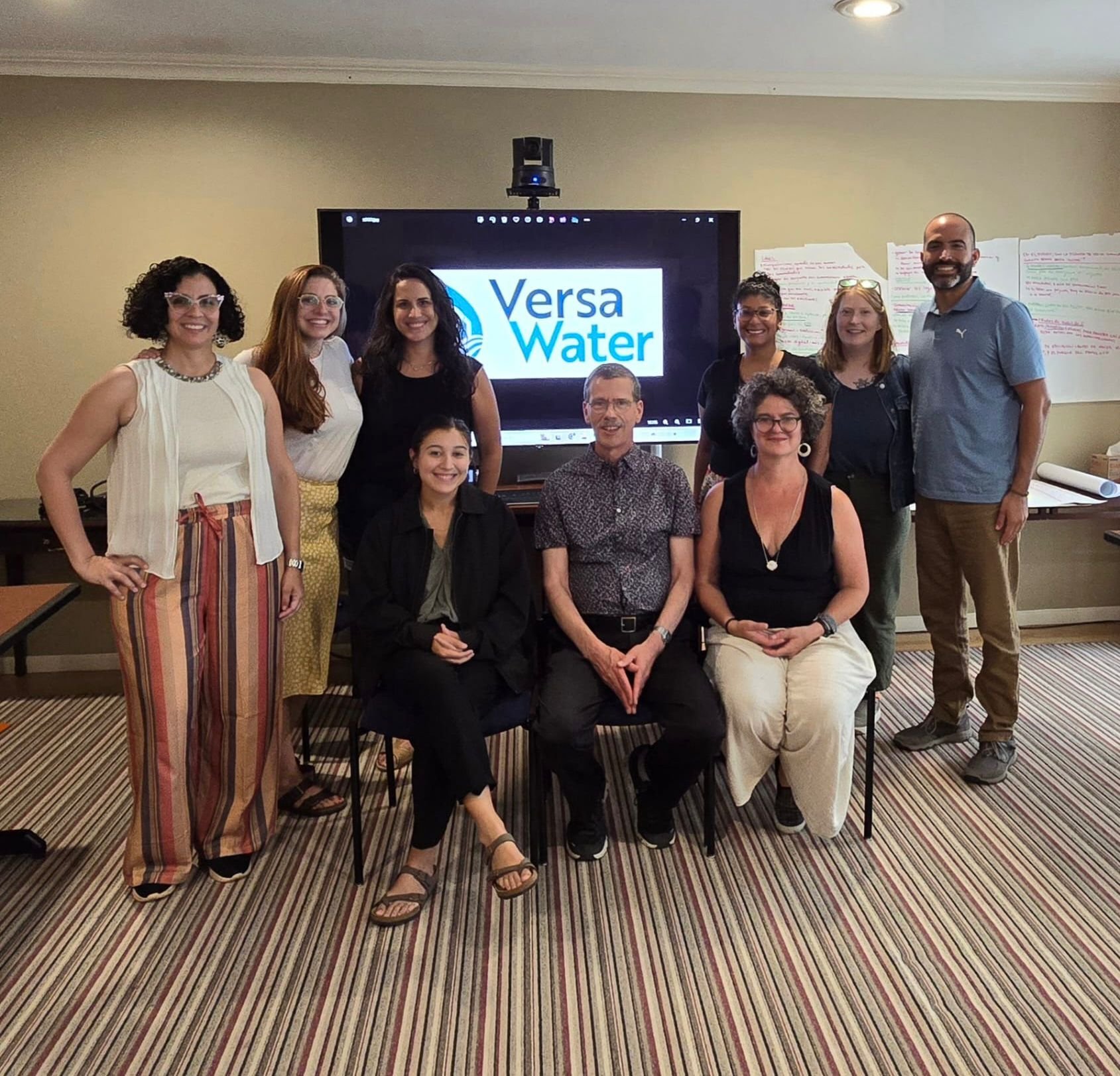This year, AguaClara Reach (ACR) was a subawardee of the National Science Foundation (NSF) Convergence Accelerator program. NSF organizes and funds this ongoing initiative to solve complex societal problems by encouraging the “merging of innovative ideas, approaches, and technologies from a wide and diverse range of sectors and expertise” (NSF Website, Convergence Accelerator Program Page). To do this, NSFselects multi-disciplinary teams from around the country and places them together in subject-based tracks, where they follow an intense curriculum centered on innovation, collaboration, and problem solving. Dr. Ruth Richardson, a long standing partner of the AguaClara program, brought together Cornell University, ACR, the Institute for Sustainability Engagement (ISE) at Syracuse University, and Centro de Educación, and Conservación e Interpretación Ambiental (CECIA) at Interamerican University of Puerto Rico to collaborate with the goal of increasing access to safe water on tap for small communities in Puerto Rico. This team is now called VersaWater, and is a collaboration that combines expertise in federal funding, community engagement, water treatment, water quality testing, workforce development, and project management.
VersaWater team at NYC Summit
This grant presented an exciting and unique opportunity to ACR for a number of reasons. ACR has been able to develop new technologies focused on treating water for small communities. This has the potential to help many communities in Puerto Rico as well as the wider global community gain access to safe water on tap. Additionally, working in PR provides an entry point for ACR into US markets, widening the scope of our organization. This year, VersaWater participated in the first phase of the NSF Convergence Accelerator in which teams work on ideation, compiling research, and making corresponding pivots where necessary. The team got to work looking for factors creating a barrier to clean water in PR. What we found first was that the most vulnerable communities have water systems that rely on raw surface water, are not run by the central government, and rely on the electrical grid to function. From there, we narrowed our focus to small rural community water systems that are not supported by the local government, and those who wanted to operate off-grid for improved reliability. Because construction costs have become so high in recent years, built in place water treatment facilities are not attainable for these small communities, so supporting and implementing a prefabricated and modular water treatment system has become a priority for VersaWater and ACR.
Through idea sharing events and boots on the ground research, the VersaWater team was able to dive deep into the problems facing small communities in Puerto Rico. Active listening was key to finding collaborative solutions to drinking water access. At a summit organized by ISE in NYC, representatives from EPA Region 2, Non-PRASA leaders, and allied organisations came together to explore drinking water solutions. One key insight gained from this event was that PR leaders tend to trust university and non-profit actors more than their governmental or private sector counterparts, highlighting the importance of diverse, trusted voices in collaborative efforts. In June 2024, CECIA hosted a workshop in Puerto Rico for community leaders to come together and discuss their water system needs. The workshop’s objectives were to actively listen to community leaders about their challenges and offer demonstrations, activities, and educational talks. Attendance included 39 potential users from 20 entities, including 18 Small Public Water Supply System (SPWSS) communities. Participants also expressed interest in operator training and advice for engaging their community, collecting fees, and managing expenses.
Many of the SPWSS that participated in the workshop are not in compliance with the Safe Drinking Water Act. However, few of these systems have received federal funding for water infrastructure. These communities often lack crucial prerequisites for most federal infrastructure grants, such as technical, managerial, or financial capacity, or even shovel-ready projects.
VersaWater has applied to participate in Phase 2 of the NSF Convergence Accelerator, which, if granted, would mean three more years of funding for this work. If we are accepted, one of our goals for this phase would be that government agencies would review pilot project applications and offer real-time guidance. We would be able to pilot our technologies designed for small communities and potentially increase the number of federally funded water infrastructure projects.
ACR is grateful to be a part of VersaWater, and we look forward to seeing what impact we can make together.

